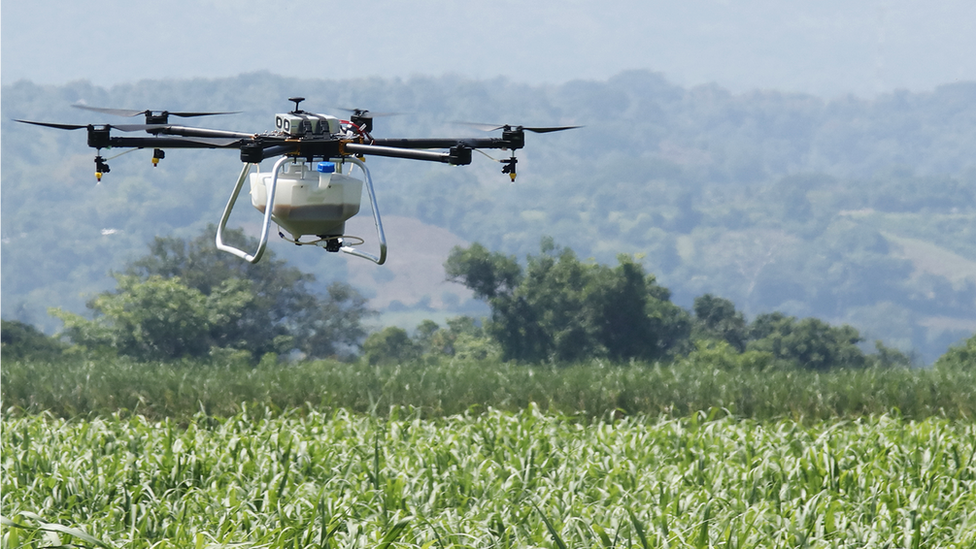Drones can 'complement' traditional farming methods
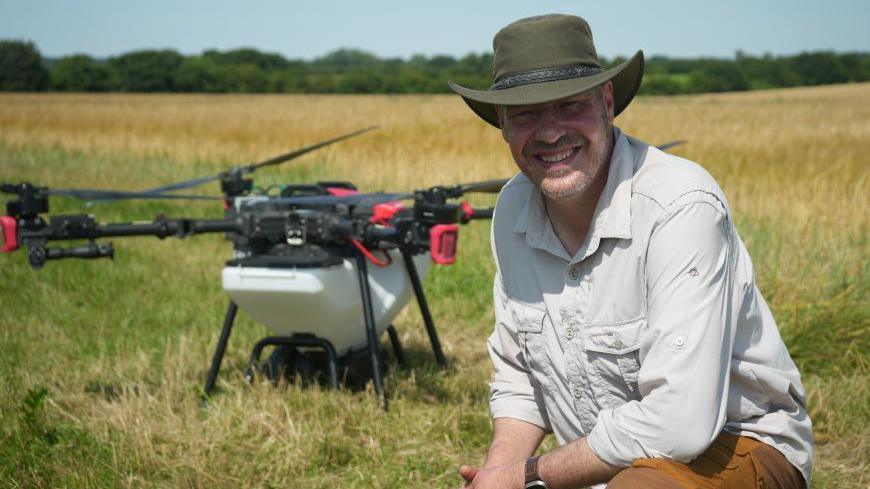
Rob Pearson says the drone is a low carbon way of working and is a fraction of the cost of a tractor
- Published
A company using drones in agriculture said it was not "competing" with traditional farming methods but "complementing" them.
AutoSpray Systems started developing the use of drones in farming five years ago and managing director Rob Pearson said the technology is "beginning to take off".
While their use can be beneficial to maintaining soil structure and reaching areas of farmland during wet weather, there are still restrictions on drones spraying pesticides.
Mr Pearson said: "Everything grows in the soil. It is the farmer's most valuable asset and the tractors compact it, they crush the ground, and this really damages the soil."
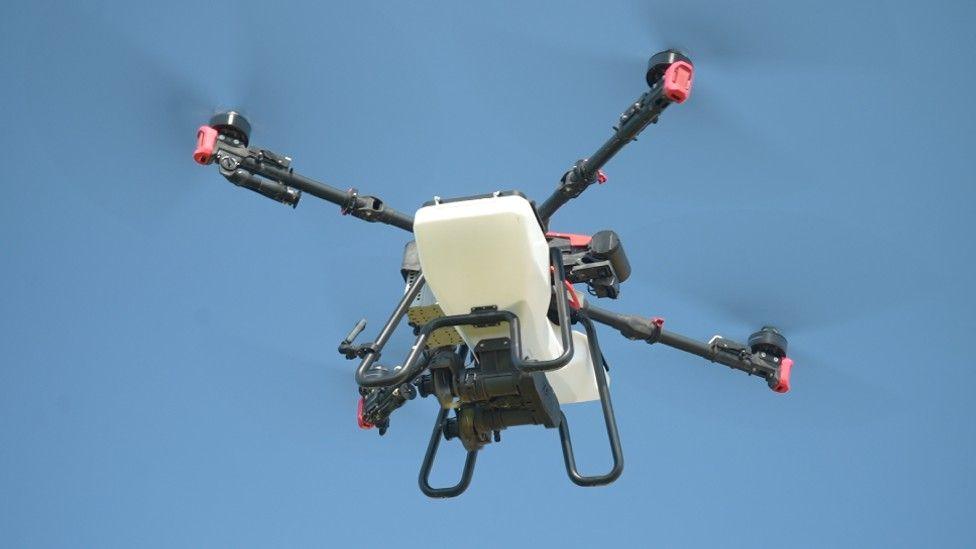
The drones are able to fly over fields rather than compacting soil like a tractor
The company starts off by mapping out the field and the drone works out the most efficient way to apply seed or spray before it takes off.
Mr Pearson said: "This isn't here to compete with a tractor... when the fields are wet the tractors simply can't get into the field, but critically they cause compaction and they cause crop damage."
He said use of the drone is a low carbon way of working and is a fraction of the cost of a tractor.
"This really came into its own last year. It was a terribly wet harvest period, farmers had to keep their crops in the ground longer than they wanted until they were dry and ripened.
"We were able to put the next crop in three weeks before harvest effectively giving the farmer an extra month in its calendar year of growing."
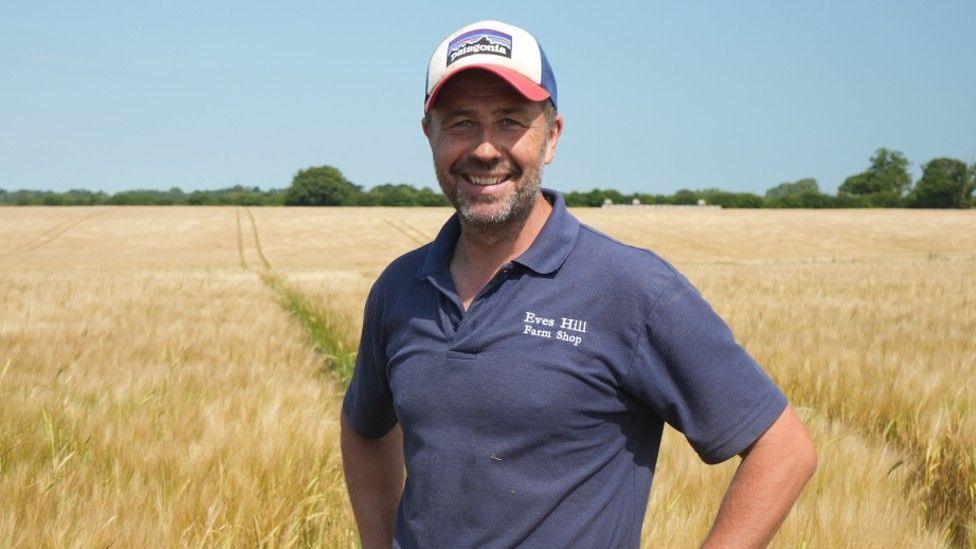
Norfolk regenerative farmer Jeremy Buxton says he is "farming with nature rather than against it"
Jeremy Buxton, who runs Eves Hill Farm in Booton, Norfolk, has started using drones after watching an episode of Countryfile featuring AutoSpray Systems on the BBC.
He said benefits of using this technology on his regenerative farm was minimal soil disturbance and being able to get a "living root" into the soil before the crop has been harvested.
He said: "We work so hard at improving soil structure and soil biology... with a drone flying above it there is no impact on the soil, be it from compaction or just moving the soil.
"I love regenerative farming... we are farming with nature rather than against it."
While there are benefits, current restrictions mean drones cannot be used to spray pesticides that farmers would typically use, however, Mr Pearson hopes to see this change within the next 18 months.
Get in touch
Do you have a story suggestion for Norfolk?
Follow Norfolk news on BBC Sounds, Facebook, external, Instagram, external and X, external.
Related topics
- Published13 September 2023
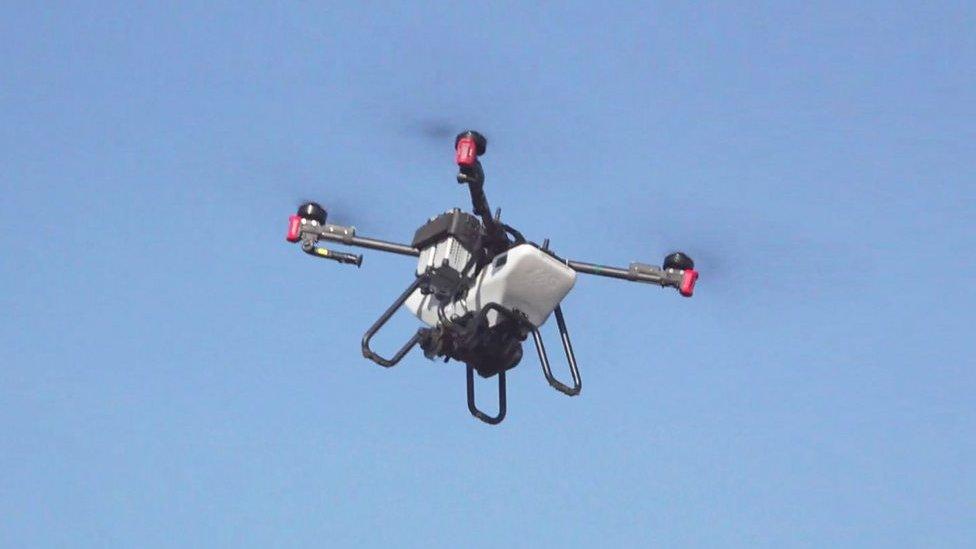
- Published3 August 2018
